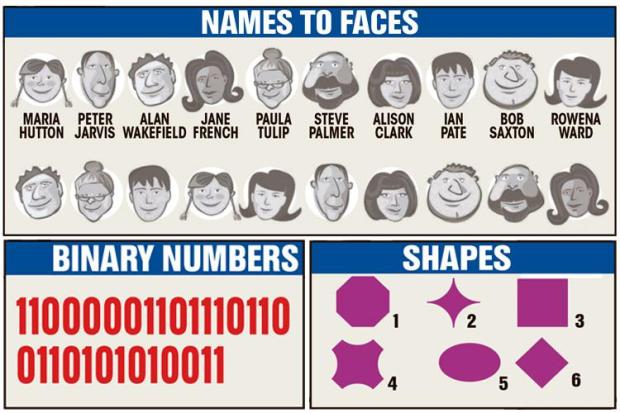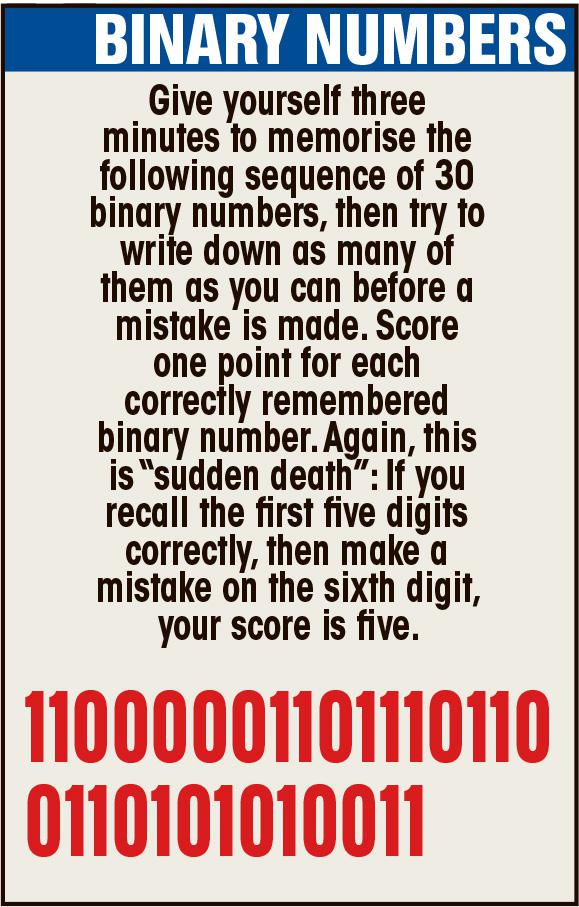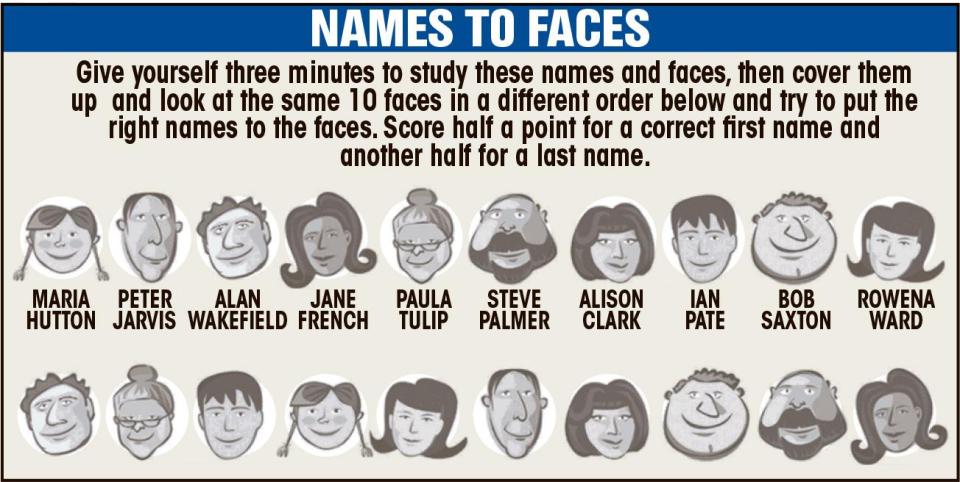World Champion shares top tips and tests to help you exercise your MEMORY from number sequences to word games
Eight time champion, Dominic O'Brien, is returning to memory competitions after a 16-year absence and has provided six tests from his new book

ALWAYS forgetting your keys? Can’t put a name to a face? Keep walking into a room and forgetting why you entered? Well, help is at hand.
Memory master Dominic O’Brien has one of the world’s greatest memories, and now he is sharing his secrets in a new book.
Dominic developed his own unique system to set a world record of 38 seconds for memorising the sequence of a pack of cards.
The recall expert won the World Memory Championships eight times, before retiring from the professional game in 2001.
Over the past 16 years Dominic has spent his time perfecting his techniques for developing a better memory.
He now plans to enter to the Pan European Memory Championships in London and return to the world championships in China later in the year - aged 60.
Here he shows you how to put your own grey cells through their paces, and offers two mind-bending techniques for improving your powers of retention.
How to Develop a Brilliant Memory Week by Week by Dominic O’Brien is published by Watkins, £7.99.
MOST READ IN HEALTH
BREAKOUT 1
Test your memory skills
Test one: Words
Allow yourself three minutes to study the following list of 20 words.
Write down as many words as you can recall.The order is not important.
Score one point for each word you can recall correctly, then move on to the next test.
TREE, PIPE, TIME, FACE, CLOCK, MOUSE, ENGINE, PLANET, THUNDER, NECKLACE, WARDROBE, CATERPILLAR, TREACLE, GARDEN, PICTURE, HARNESS, SLEEP, APPLE, OCEAN, BOOK
Test two: Number sequence
Study the following sequence of 20 digits for three minutes.
In this test the order is important. Write down as many numbers in the correct sequence as you can before a mistake is made.
Score one point for each correct digit. This is “sudden death” - in other words, if you recall all 20 digits but the fifth digit is incorrect, your score is four.
5 0 3 6 7 4 4 0 9 2 8 2 0 5 7 6 7 1 2 9
Test three: Shapes
Take three minutes to look at the following sequence of ten shapes.
Memorise them in the running order shown below, from one to ten.
Cover them up.
Below you will see the same shapes you have just memorised, but in a different order.
Try to number them in their original order. Score one point for each correctly numbered shape.
Test four: Binary numbers
Allow yourself three minutes to memorise the following sequence of 30 binary numbers, then try to write down as many of these numbers as you can before a mistake is made.
Score one point for each correctly remembered binary number.
Again, this is “sudden death”: if you recall the first five digits correctly, then make a mistake on the sixth digit, your score is five.
1 1 0 0 0 0 0 1 1 0 1 1 1 0 1 1 0 0 1 1 0 1 0 1 0 1 0 0 1 1
Test five: Playing cards
Take three minutes to study the following ten playing cards, then try to repeat the exact sequence in your notebook.
As with the numbers, this is “sudden death”.
Score one point for each card you can recall before a mistake is made.
Test six: matching names to faces
Study the following 10 faces and try to form links to their names.
Now cover those faces and look at the same 10 faces in a different sequence below.
Try to match the correct names to the faces.
Score half a point for each correct first name and half a point for each correct surname.
How did you score?
Add up your scores from the six tests to arrive at a total. The maximum points you can score is 100.
Untrained: 20 or over; Improver: 35 or over; Master: 70 or over.
If your score is above the Improver range, then you have great memory potential.












